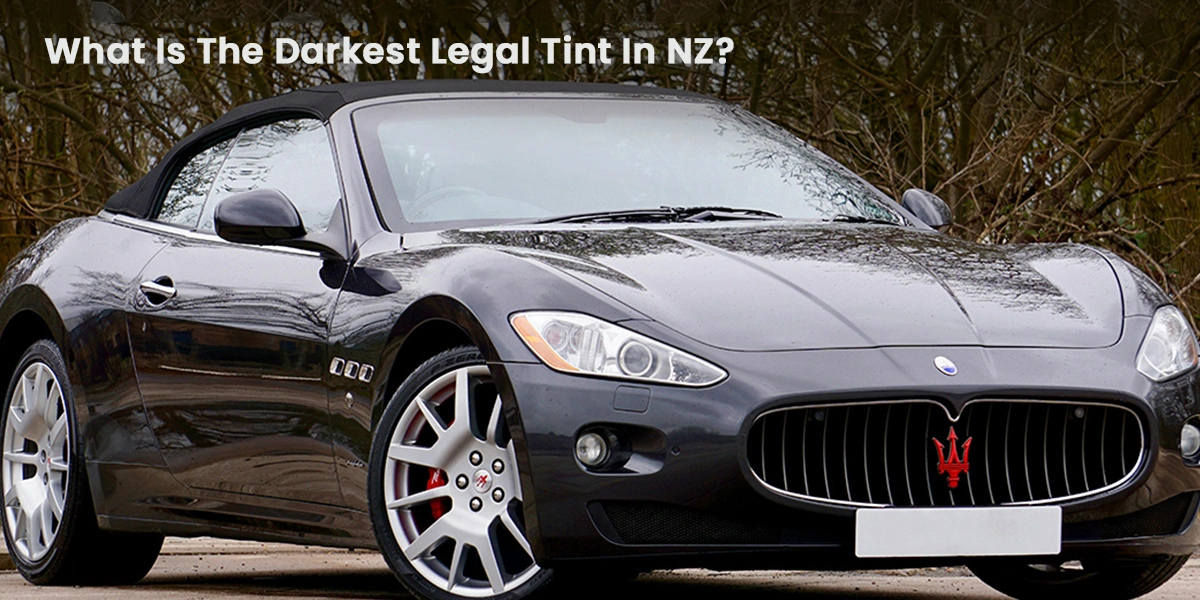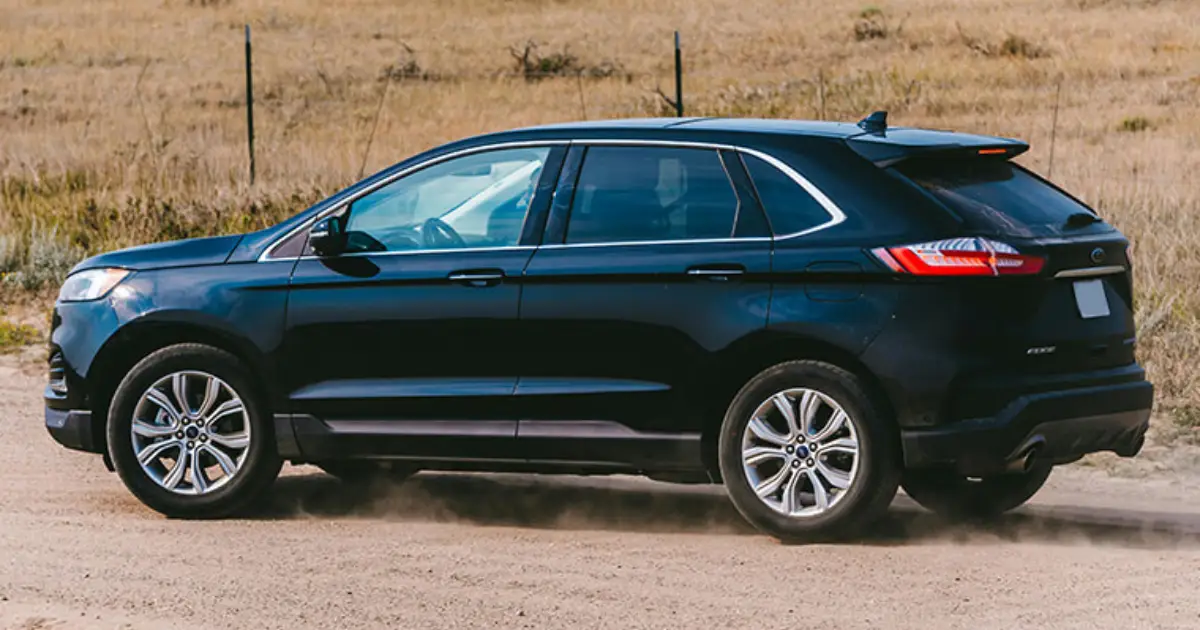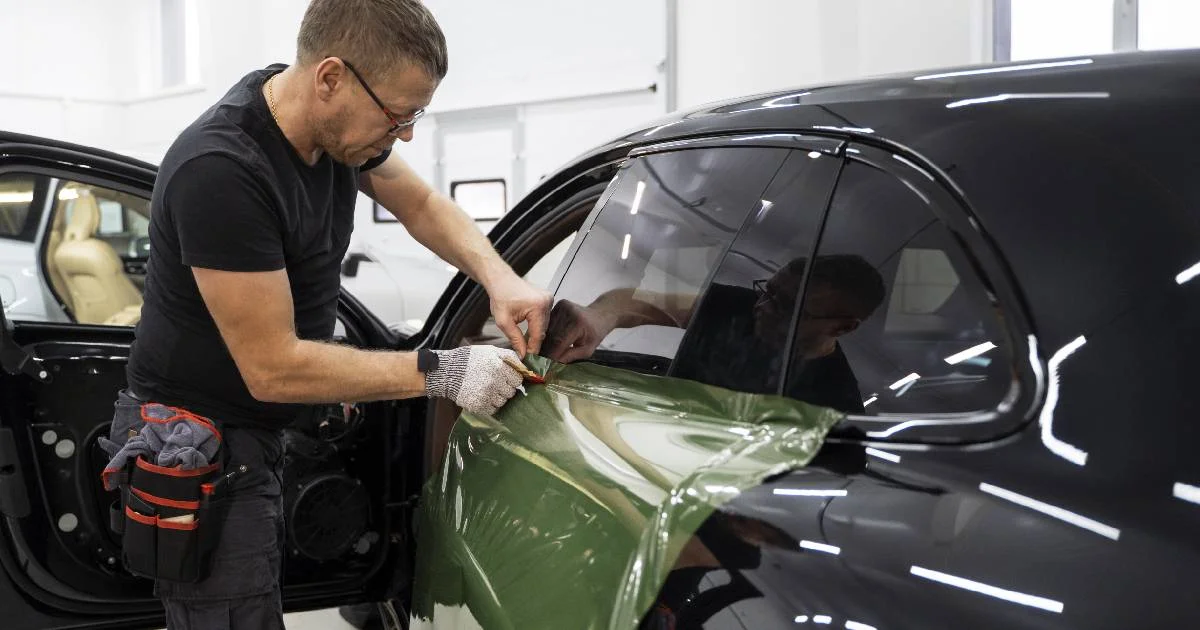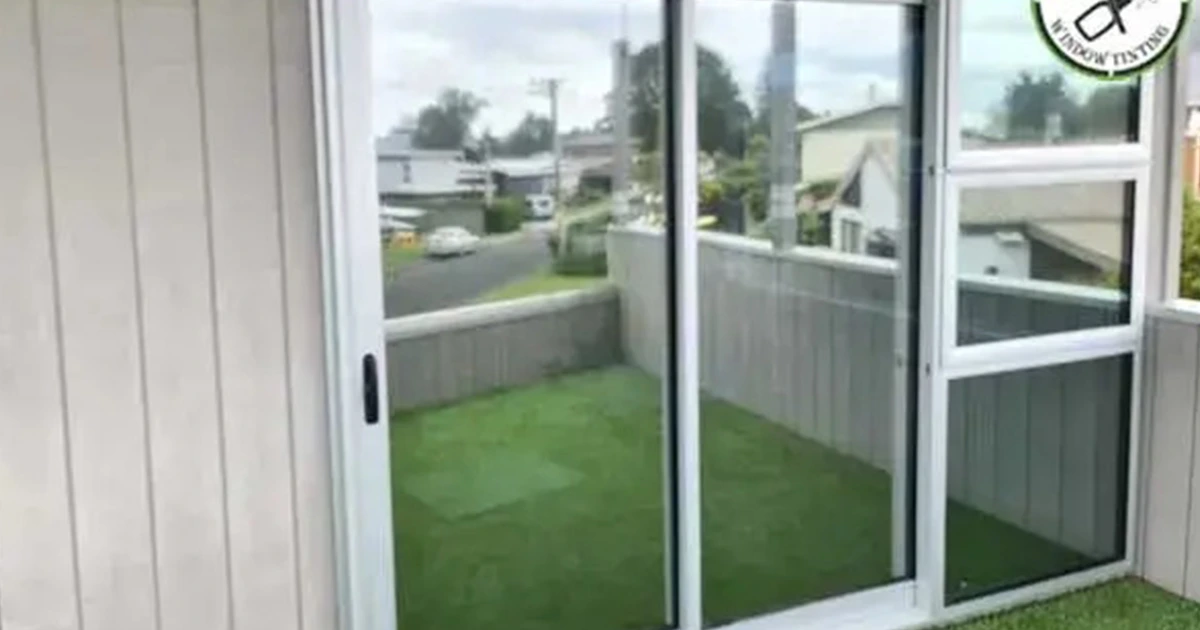
What Is The Darkest Legal Tint In NZ?
30 Aug 2024, By AdminYou’re cruising down a long, smooth highway, taking in the scenic beauty all around you. Suddenly, a sleek black sedan zooms by, catching your eye with its dark, mysterious window tints. The striking contrast between the deep black glass and the shining car body leaves you a bit envious—there’s something undeniably captivating about those dark tints.
Let’s be honest: dark tints give any car a bold, impressive look. Beyond their aesthetic appeal, they also offer practical benefits like protecting passengers from the sun and keeping the interior cool. However, it’s important to remember that there are specific regulations in New Zealand regarding the use of dark tints on vehicles, enforced by the New Zealand Transport Agency and the Ministry of Transport. These regulations must be followed to ensure your car stays road legal.
In this guide, we’ll cover everything you need to know about shaded car window tints, including the legal requirements in New Zealand. We’ll also show you how to have these dark tints installed on your car, legally and expertly.
How to Install the Darkest Legal Tints in NZ
At AutoExpert.co.nz, we are specialists in shaded car window tinting with over 8 years of experience. When it comes to ensuring that your car’s tints are both stylish and compliant with legal standards, AutoExpert is the name you can trust.
To achieve the best and darkest legal tint for your vehicle, visit our studio. Our experts will guide you through the process, helping you choose the perfect tint to transform your car.
Curious about what makes AutoExpert stand out? Learn more about us here, where you'll also find our contact details and location.
Now, let’s dive into the rules and regulations surrounding window tinting in New Zealand and find out what the darkest legal tint is.
Legal Tint NZ: The Reason for Regulations
Dark tints can make a vehicle look sleek and imposing, but there are good reasons for the legal restrictions on their use.
One of the main concerns is visibility. Once windows are heavily tinted, the interior of the vehicle becomes obscured, which could be exploited by individuals with ill intent, making it difficult for law enforcement to see inside the vehicle.
To prevent such issues, New Zealand has established clear rules for the use of dark tints.
These regulations don’t just apply to windows; there are also restrictions on tinting headlights. According to the New Zealand Transport Agency, it’s illegal to apply tint to headlights or lamps, except for decorative purposes.
How Tint Darkness Is Measured
The darkness of shaded car window tints is measured by Visual Light Transmittance (VLT).
VLT refers to the amount of light that can pass through the tinted windows. A higher VLT percentage means more light passes through, indicating a lighter tint, while a lower VLT percentage means less light passes through, indicating a darker tint.
To better understand the legal requirements, let’s take a closer look at the classification of passenger vehicles.
Classification of Passenger Vehicles
The New Zealand Transport Authority categorizes vehicles based on factors like size, power, and seating capacity.
Passenger vehicles are classified into three main categories: MA, MB, and MC.
- MA (Passenger Car): Vehicles with up to 9 seating positions, including the driver.
- MB (Forward Control Passenger Vehicle): Vehicles with 9 seating positions and a steering wheel located in the forward quarter of the vehicle’s length.
- MC (Off-Road Passenger Vehicle): Vehicles designed for off-road use, also with 9 seating positions.
Other classifications include MD (light omnibus), ME (heavy omnibus), goods vehicles, and trailers, each with further sub-categories based on weight, capacity, and usage.
Checking Tint Compliance
The most accurate way to check if your window tint complies with NZ laws is by using a calibrated VLT meter, available at our studio. This device measures the exact VLT of the tint, ensuring it fully complies with the regulations set by the New Zealand Transport Agency and the Ministry of Transport.
We also recommend placing a sticker on the windshield that indicates the VLT level of the installed tints, which can help speed up inspections. While not mandatory, this sticker can make the process smoother.
For a more detailed understanding of legal tinting regulations, you can visit the Ministry of Transport’s website: Land Transport Rule: Glazing, Windscreen Wipe and Wash, and Mirrors Rule 1999.
Dark tints on car windows are not only stylish but also provide privacy and protection from the sun. However, they can also be misused, which is why strict regulations are in place.
At Dr. Tint, we have experience in installing top-quality dark tints that are both stylish and fully compliant with all legal requirements.
Consult with us today and give your car the perfect makeover with our expert tinting services!
Book Now

Stay Cool on the Road: How the Right Window Tinting Can Beat the Summer Heat
30 Aug 2024, By AdminWhether it is your first car or a second buy, a car is always a prized possession. Becoming a proud owner of a sophisticated vehicle is nothing less than an achievement. The story does not end here! If you are a car enthusiast, you will probably love to make some modifications to enhance its aesthetics and value.
Have you ever considered tinting your car windows? If not, this summer is absolutely the perfect time to get it done! Car window tinting is not only about making your car look classy and sophisticated, but it does have potential benefits.
Auto window tinting is becoming predominantly popular this season, and we have listed all the reasons, making it a worthy investment. Let’s check them out.
Auto Window Tinting: The Perfect Score!
Let’s face it; every car does not come from the showroom with tinted windows. Lucky those who already have it! Others have to live with the glaring sun on their face or get a customized service for tinted windows.
Now, why do we suggest you tint your car windows?
Glare Reduction- The most obvious reason to install a black or grey film on the windows is to reduce glare and enable a better of the road and the surroundings. Too much light makes you squint. As a result, you become prone to road accidents. So, whether it is the bright sunlight or the reflection from another vehicle, a tinted window curtails glare.
Block UV Rays- Driving on a hot sunny day means abundant exposure to UV rays. Despite applying sunscreens and sunblock creams, you still are exposed to the sun rays. What should you do? Tint the car windows and enjoy a more comfortable and safer drive! The tint films block UV rays, protecting you from their harmful effects.
Reduces Heat- Car tinting Tauranga is one of the best ways to keep off the heat while you are on the road! Your car’s interior feels cooler and more comfortable. Whether you have to park your car outside in the sun or have a long travel ahead, the interior of the car stays bracing.
Eliminate Health Risks - Often, prolonged driving in a very hot environment increases the risk of several health problems. Migraines, palpitation, and sun tanning are prevalent problems related to high temperatures. Sometimes, you may feel fatigued and exasperated when you have to deal with an uncomfortable surrounding.
Promote Energy Efficiency - What happens when you have a cooler temperature inside the car? The use of the air conditioning system becomes less. As a result, fuel consumption also decreases. It implies that you can save on your pockets! Isn’t it awesome?
Enhanced Protection - Driving a car means you are always susceptible to risks. In such an instance, if there is any physical impact on your car, even if the windows shatter, the glass pieces won’t fall apart. They will stick to the tint film. It saves the occupants inside from injuries.
Safeguard Upholstery - The cost to tint car windows is much less than your car upholstery! We mean that most tears and fading of the car upholstery happen due to excessive exposure to sunlight. Consider the seat covers or the synthetic seat belts, you will notice fading or tears at some point. You can considerably delay the process by tinting the windows and minimizing heat and light exposure.
Better Privacy - Undeniably, tinted windows provide better privacy than clear windows. Though you will be able to see the surroundings clearly, the ones outside will not get a transparent view of the interiors. Therefore, VIPs generally travel in cars with tinted windows.
Increased Comfort - When you have a cooler and more secure environment, naturally it boosts comfort. The heat does not burn your skin, the light stops glaring, and the ambience feels privatized- all of these contribute to enhanced comfort.
Boosted Aesthetics - Finally, how can anyone miss spotting a car with black windows? It looks highly sophisticated and classy. Anyone will turn their head to look at the car! So, elegance and class personified!
Key Takeaways
The benefit of car window tinting is enormous! From increased safety to enhanced aesthetic appeal, you have so many factors to count on! If window tinting was never on your list, we think now is the time you think over it and give it a try. The result will be marvellous!

The Ultimate Guide to Vinyl Wrap in Hamilton: Tips and Tricks for a Stunning Finish
30 Aug 2024, By AdminVinyl wrapping has become an increasingly popular method for transforming the appearance of vehicles, furniture, and other surfaces. In Hamilton, the trend has caught on, with enthusiasts and businesses alike embracing the versatility and durability of vinyl wraps. Whether you're looking to add a personal touch to your car or give your business vehicle a professional look, mastering the art of vinyl wrapping is essential. In this comprehensive guide, we'll explore the ins and outs of vinyl wrap in Hamilton, providing you with tips and tricks for achieving a stunning finish.
Understanding Vinyl Wrap
Before diving into the application process, it's crucial to understand the basics of vinyl wrap. Vinyl wraps are thin, adhesive-backed films that adhere to surfaces, creating a protective layer that can be customized with various colors, textures, and designs. They offer a cost-effective alternative to traditional paint jobs, allowing for easy removal and updates.
Choosing the Right Vinyl
Selecting the right vinyl is the foundation of a successful wrap. Consider the surface you're wrapping and the desired finish. For vehicles in Hamilton's diverse weather conditions, opt for high-quality, weather-resistant vinyl to ensure longevity. Matte, gloss, satin, and metallic finishes are popular choices, each offering a unique aesthetic.
Preparing the Surface
Proper surface preparation is key to a flawless vinyl wrap. Ensure that the surface is clean, smooth, and free from any dirt, grease, or wax. Use a mild detergent and water solution to clean the surface thoroughly, and follow up with isopropyl alcohol to remove any remaining residue. Repair any existing damage, such as dents or scratches, before starting the wrapping process.
Essential Tools for the Job
Gather the necessary tools before beginning the vinyl wrap process. Essential tools include a squeegee, heat gun, knife or cutting tool and measuring tape. Investing in high-quality tools will make the application smoother and result in a professional-looking finish.
Mastering the Application
The key to a successful vinyl wrap lies in the application technique. Start by carefully aligning the vinyl with the target surface, ensuring a slight overhang on all edges. Use a squeegee to remove air bubbles and smooth out the vinyl, working from the center outward. A heat gun can be used to stretch the vinyl around curves and contours for a seamless finish.
Trimming and Finishing Touches
Once the vinyl is applied, trim the excess material with precision. A sharp cutting tool is crucial for achieving clean edges and corners. Pay attention to details, such as door handles and curves, to ensure a professional look. Seal the edges with a heat gun for added durability and longevity.
Maintenance and Care
To preserve the quality and appearance of your vinyl wrap in Hamilton's varying weather conditions, follow a routine maintenance schedule. Wash your wrapped surface regularly with a mild detergent, avoiding abrasive cleaners that could damage the finish. Additionally, park your wrapped vehicle in shaded areas whenever possible to minimize exposure to harsh sunlight.
Conclusion
Vinyl wrapping in Hamilton opens up a world of creative possibilities for vehicle customization and branding. By understanding the nuances of the process and incorporating the tips and tricks outlined in this guide, you can achieve a stunning finish that not only turns heads but also stands the test of time. Whether you're a DIY enthusiast or seeking professional services, mastering the art of vinyl wrap will undoubtedly elevate your style and make a lasting impression on the streets of Hamilton.

Home Window Tinting: What Is It and How Much Does It Cost?
30 Aug 2024, By AdminAs homeowners seek innovative ways to improve comfort, energy efficiency, and privacy, home window tinting has become a popular solution. But what exactly is home window tinting, and how much does it cost? In this blog, we’ll dive into the benefits, process, and pricing of this transformative home upgrade.
What is Home Window Tinting?
Home window tinting involves applying a thin, durable film to the interior or exterior of your windows. The film is designed to reduce heat, glare, and UV rays while offering privacy. While window tinting is commonly associated with cars, it has gained popularity for residential applications due to its ability to enhance energy efficiency and protect home interiors.
Types of Window Tinting Films:
- Solar Control Films: Reduce heat and glare, keeping your home cooler in the summer and reducing energy costs.
- Security Films: Provide added protection by making glass more difficult to break, preventing potential intrusions.
- Decorative Films: Offer an aesthetic appeal with frosted or colored designs that add privacy without sacrificing style.
- UV Blocking Films: Block up to 99% of harmful UV rays, helping to protect furniture, floors, and artwork from fading.
Benefits of Home Window Tinting
- Energy Efficiency: One of the key advantages of home window tinting is its ability to lower energy bills. By blocking heat from entering your home during the summer and insulating windows during the winter, your HVAC system doesn’t have to work as hard to maintain a comfortable temperature.
- UV Protection: Prolonged exposure to UV rays can damage your skin and fade your furniture and flooring. Tinted windows can block a significant portion of UV rays, safeguarding your home and family.
- Privacy: Tinted windows offer enhanced privacy by limiting the view into your home from the outside, making it difficult for people to see inside during the day.
- Reduced Glare: Home window tinting can significantly cut down on glare, improving comfort while watching TV, using computers, or simply relaxing.
- Security: Security films make windows harder to break, adding a layer of protection against intruders and severe weather.
How Much Does Home Window Tinting Cost?
The cost of home window tinting depends on several factors, including the size and number of windows, the type of film you choose, and the complexity of the installation. Here’s a general breakdown:
- Cost Per Square Foot: Home window tinting typically ranges from $5 to $15 per square foot. High-end or specialized films, such as security or decorative films, can be on the higher end of this range.
- Installation Costs: Installation costs vary depending on the difficulty of the project. Professional installation ensures a smooth, bubble-free application and can range from $150 to $400 per window. Large or uniquely shaped windows may cost more due to the complexity of the installation.
- DIY vs. Professional Installation: While DIY window tinting kits are available and can be a more affordable option (around $2 to $4 per square foot), they often lack the quality and durability of professional-grade films. A DIY job also carries the risk of errors, such as bubbles or peeling, which may result in additional costs down the line.
Factors Affecting the Cost of Home Window Tinting
- Window Size and Quantity: The more windows you have, the more the project will cost. Larger windows also increase costs due to the additional material and time required.
- Film Type: The specific type of film you choose impacts the price. Decorative, security, or UV-blocking films are usually more expensive than basic solar films.
- Location: Installation costs can vary depending on your geographic location and the availability of professional services.
- Additional Features: Some window films offer extra benefits like anti-glare or energy efficiency, which may come at a higher cost.
Is Home Window Tinting Worth the Investment?
Given the benefits of energy savings, enhanced privacy, and UV protection, home window tinting can be a smart investment for homeowners. In regions with extreme heat or cold, the energy savings alone can offset the initial cost over time. Additionally, the long-term benefits of protecting your furniture and reducing the risk of break-ins make it a valuable home improvement option.
Home window tinting is a cost-effective way to improve energy efficiency, privacy, and security in your home. While prices can vary depending on your specific needs, the long-term benefits make it a worthwhile investment for many homeowners. Whether you opt for professional installation or a DIY approach, window tinting offers a range of solutions to enhance your living space.
If you’re considering tinting your home’s windows, get quotes from local professionals to determine the best options for your budget and needs.
